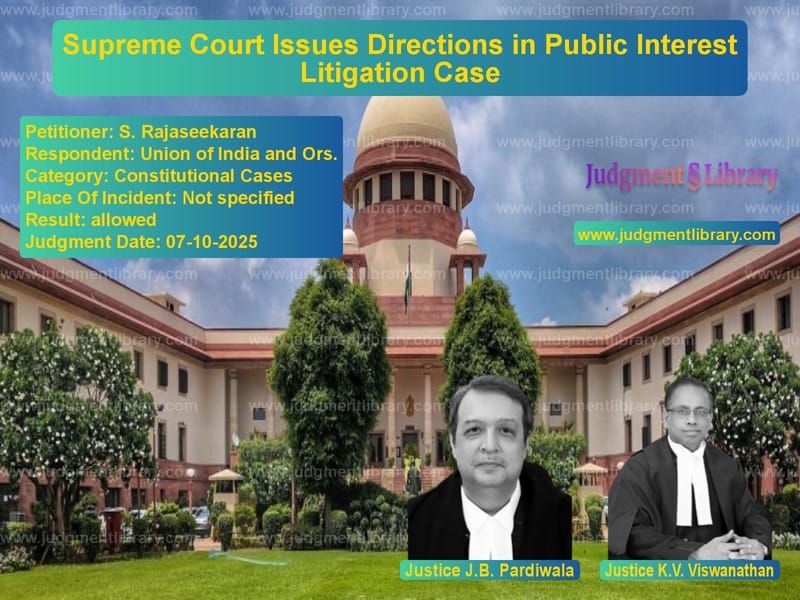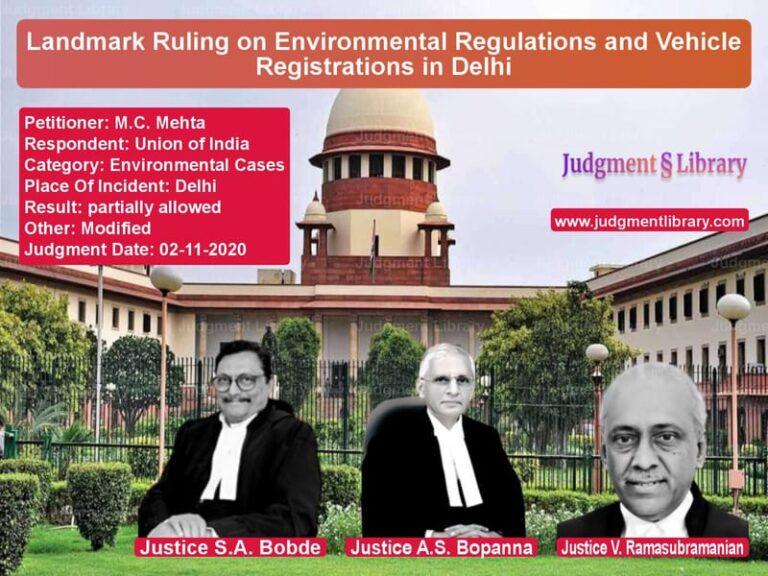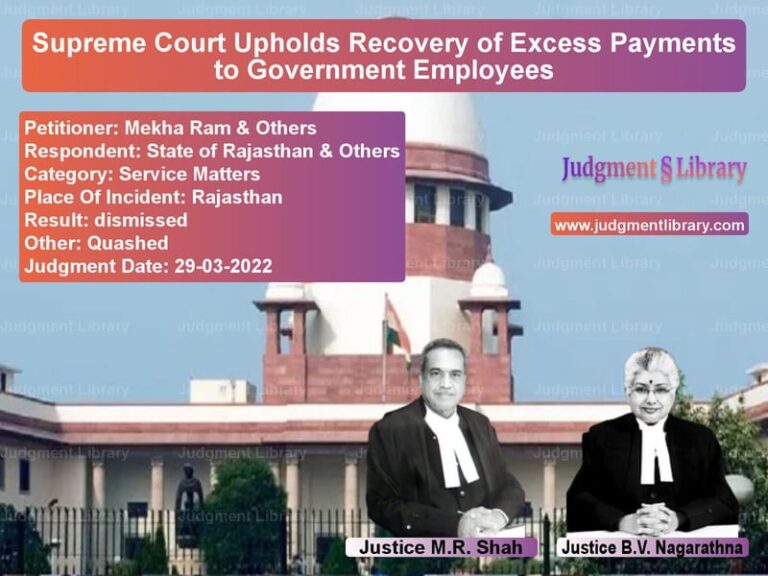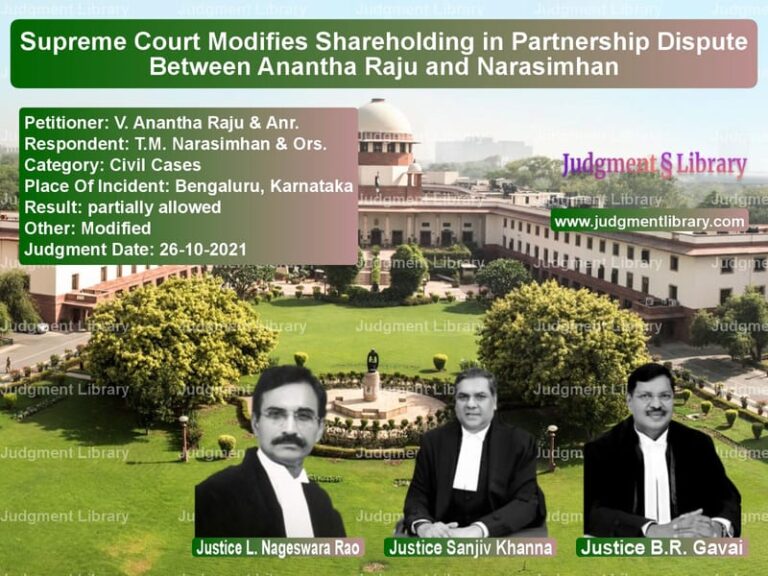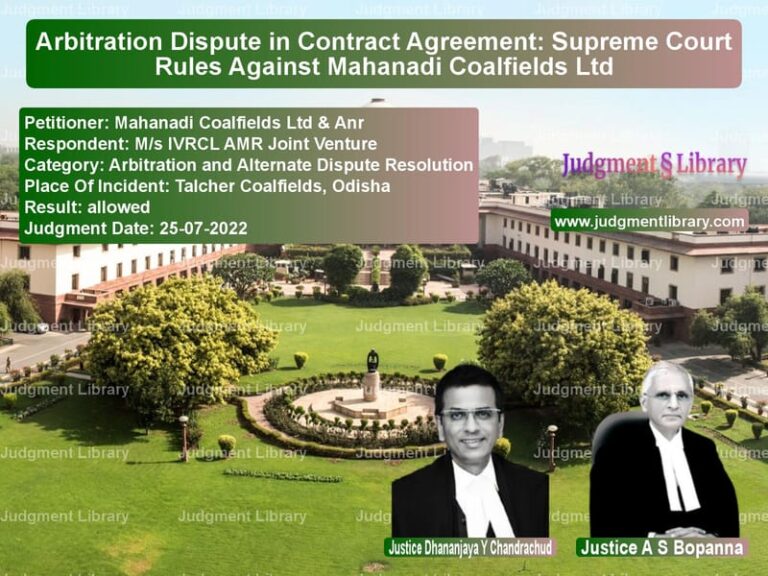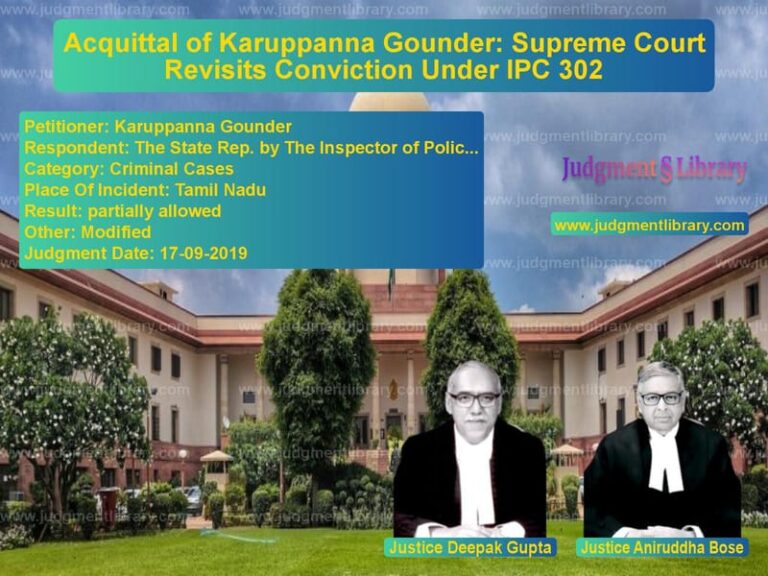Supreme Court Issues Directions in Public Interest Litigation Case
The Supreme Court of India has recently pronounced significant directions in a long-pending Public Interest Litigation (PIL) case that has been before the judicial system for over a decade. The case, originally filed in 2012 by petitioner S. Rajaseekaran against the Union of India and various other respondents, reached another crucial milestone in its judicial journey with the latest proceedings before a bench comprising Justices J.B. Pardiwala and K.V. Viswanathan. The matter, which has seen numerous hearings and interventions over the years, continues to address important public interest concerns that affect citizens across the nation.
What makes this particular case noteworthy is not just its longevity in the judicial system, but the comprehensive approach taken by the Supreme Court in ensuring that all stakeholders are adequately represented and heard. The Court appointed Senior Advocate Gaurav Agrawal as amicus curiae to assist in the matter, demonstrating the complexity and significance of the issues involved. The presence of multiple intervenors and extensive legal representation from various parties indicates the wide-ranging implications of this litigation.
The Procedural History and Current Proceedings
The Writ Petition (Civil) No. 295 of 2012 has been winding its way through the Supreme Court for more than thirteen years, a testament to the complex nature of the issues involved and the careful consideration required from the judiciary. The case was listed before the bench for pronouncement of order on October 7, 2025, marking another important chapter in its extensive legal journey.
The proceedings involved consideration of several interlocutory applications, including IA No. 50798/2025 seeking appropriate orders/directions, IA No. 43387/2025 also seeking appropriate orders/directions, and IA No. 119142/2024 seeking permission to file application for direction. The sheer number of applications pending before the Court indicates the dynamic nature of the case and the evolving legal questions that require judicial resolution.
The matter attracted extensive legal representation, with numerous advocates and law officers appearing for various parties. The petitioner was represented by Mr. Krishna Kumar, while the respondents, including the Union of India, were represented by a large contingent of lawyers led by Additional Solicitor General Mr. Vikramjit Banerjee. The diversity and number of legal representatives highlight the multi-faceted nature of this public interest litigation and the various interests involved.
The Court’s Directions and Future Course
The bench comprising Justices J.B. Pardiwala and K.V. Viswanathan pronounced the order of the Court, passing various directions as contained in the reportable order. While the specific details of these directions are part of the comprehensive order document, the procedural directions given by the Court provide insight into the ongoing nature of this litigation and the Court’s commitment to ensuring proper implementation of its orders.
In a significant procedural direction, the Court ordered that “The Registry shall list this matter once again after a period of seven months to report compliance of our directions and further progress in the matter.” This direction demonstrates the Court’s proactive approach in monitoring the implementation of its orders and ensuring that the directions issued are complied with in letter and spirit. The seven-month timeframe suggests that the Court expects substantial progress in the implementation of its directions while allowing sufficient time for the concerned authorities to take necessary action.
Additionally, upon being mentioned by Mr. Kishan Chand Jain, the learned counsel appearing for the respondents seeking urgent listing of IA No. 43387/2025 and IA No. 119142/2024 respectively, the Court directed the Registry to list these interlocutory applications on November 17, 2025. This indicates that while the main matter will be reviewed after seven months, certain urgent aspects require earlier judicial attention.
The Role of Amicus Curiae and Extensive Legal Representation
The appointment of Senior Advocate Gaurav Agrawal as amicus curiae in this matter underscores the complexity and public importance of the issues involved. An amicus curiae, or “friend of the court,” is typically appointed in cases where the Court requires expert assistance in understanding complex legal issues or where broader public interests are at stake. Mr. Agrawal’s role would involve providing impartial legal assistance to the Court, researching relevant legal questions, and offering suggestions to help the Court arrive at a just decision.
The extensive legal representation in this case is remarkable. The cause list shows appearances by multiple Additional Solicitor Generals, Senior Advocates, and numerous advocates representing various respondents and intervenors. This level of legal participation suggests that the case involves multiple stakeholders with diverse interests, possibly including central and state governments, statutory authorities, and possibly private entities affected by the litigation.
The presence of advocates representing different states and union territories indicates that the issues in this PIL have pan-India implications, affecting multiple jurisdictions across the country. This is characteristic of many significant public interest litigations that seek to address systemic issues or challenge policies and practices that have nationwide relevance.
The Significance of Long-pending PILs in Indian Judiciary
The fact that this PIL has been pending since 2012 highlights both the challenges and the importance of public interest litigation in India. PILs have been a significant instrument of social change and governance reform in India since the 1980s, allowing citizens and social activists to approach the courts for enforcement of public duties and protection of collective rights.
Long-pending PILs often involve complex issues that require continuous judicial monitoring and periodic interventions. They may address systemic problems in governance, environmental protection, human rights, or public welfare schemes that cannot be resolved through a single judgment but require ongoing judicial supervision to ensure proper implementation of directions and policies.
The Supreme Court’s approach in this case – of passing comprehensive directions and then scheduling the matter for compliance monitoring after a specific period – reflects the evolving nature of judicial review in public interest matters. This approach recognizes that many public interest issues require not just declaratory relief but continuous engagement between the judiciary and the executive to ensure that constitutional values and legal principles are translated into practical reality.
Broader Implications and Future Prospects
While the specific subject matter of this PIL is not detailed in the available document, the procedural history and the Court’s approach suggest that it deals with issues of significant public importance. The Court’s direction to list the matter after seven months for compliance reporting indicates that the directions issued are likely to require substantial administrative action and possibly structural changes in governance or policy implementation.
The fact that the Court has taken up interlocutory applications for urgent hearing while maintaining the main matter for compliance monitoring after seven months demonstrates a balanced approach – addressing immediate concerns while maintaining oversight of the broader issues.
Public interest litigations of this nature often serve as important mechanisms for judicial innovation and the development of constitutional jurisprudence. They allow the courts to address gaps in governance, protect vulnerable sections of society, and ensure that constitutional mandates are fulfilled by the state and its instrumentalities.
As this case moves forward, it will be important to observe how the various stakeholders respond to the Court’s directions and what progress is reported when the matter is listed again after seven months. The continued involvement of the amicus curiae and the extensive legal representation suggest that the issues involved require sophisticated legal analysis and careful balancing of competing interests.
The Supreme Court’s handling of this long-pending PIL reflects the judiciary’s commitment to ensuring that public interest matters receive thorough consideration and that the directions issued are effectively implemented. This approach reinforces the role of the judiciary as a guardian of constitutional values and a protector of public interest in India’s democratic framework.
Petitioner Name: S. Rajaseekaran.Respondent Name: Union of India and Ors..Judgment By: Justice J.B. Pardiwala, Justice K.V. Viswanathan.Place Of Incident: Not specified.Judgment Date: 07-10-2025.Result: allowed.
Don’t miss out on the full details! Download the complete judgment in PDF format below and gain valuable insights instantly!
Download Judgment: s.-rajaseekaran-vs-union-of-india-and-o-supreme-court-of-india-judgment-dated-07-10-2025.pdf
Directly Download Judgment: Directly download this Judgment
See all petitions in Public Interest Litigation
See all petitions in Constitution Interpretation
See all petitions in Fundamental Rights
See all petitions in Separation of Powers
See all petitions in Legislative Powers
See all petitions in Judgment by J.B. Pardiwala
See all petitions in Judgment by K.V. Viswanathan
See all petitions in allowed
See all petitions in supreme court of India judgments October 2025
See all petitions in 2025 judgments
See all posts in Constitutional Cases Category
See all allowed petitions in Constitutional Cases Category
See all Dismissed petitions in Constitutional Cases Category
See all partially allowed petitions in Constitutional Cases Category

